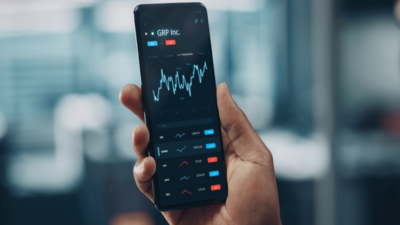When you’re walking on a sidewalk or legally crossing a street, you don’t expect a vehicle to come out of nowhere and hit you. Unfortunately, it can happen. And as an injured pedestrian, it’s important that you act swiftly to ensure you get the right medical and financial assistance.
Table of Contents
6 Steps to Take After Being Hit By a Vehicle
Pedestrian accidents don’t get a ton of news coverage, but they’re far more common than most people realize. And while the data hasn’t been updated in a couple of years, it’s safe to assume the numbers remain relatively similar from year to year.
For example, in 2017 in the United States, 5,977 pedestrians died in traffic crashes. Furthermore, 137,000 were treated for crash-related injuries. What’s more, pedestrians are 1.5 times more likely to be killed than vehicle passengers in a crash.
As the statistics show, pedestrian accidents are very dangerous. While the driver of the vehicle is protected by a steel frame, the pedestrian has no protection. The speed combined with the brute force is enough to inflict serious damage.
If you’re unfortunate enough to find yourself in an accident of this magnitude, here’s what you should do:
Identify the Driver
Assuming you’re conscious and aware of your surroundings, the first step is to identify the driver. While not exactly common, hit-and-runs do occur with pedestrian accidents. Drivers will often become scared and flee the scene. If you can identify the vehicle make and model, license plate number, and/or a physical description of the driver, you’ll have more to go with.
Get Immediate Medical Attention
Call 911 and get EMS to the scene as soon as possible. It doesn’t matter if you’re feeling pain or not, you need medical attention. Sometimes the adrenaline from an accident of this magnitude will actually mask pain symptoms and prevent you from feeling an injury. This adrenaline can stick around for minutes or even hours.
When medical personnel arrives at the scene, have them conduct a full and thorough checkup and attend to any injuries you have. If they recommend taking you into an emergency room, listen to them. No matter how inconvenient it may seem, it’s important to your claim that you follow precisely what the medical and healthcare professionals recommend. (A failure to do so could actually compromise any future claims you make.)
Call Law Enforcement
In all likelihood, police officers will be dispatched to the scene alongside EMS. However, just in case they aren’t, it’s important that you get an officer to the scene. They’ll want to ask you questions, as well as the driver and any witnesses that may be present.
Answer the officer’s questions very directly, but don’t give a long-winded account. There will be time to rehash all of the details later with your attorney present.
Gather Contact Information
If there are any witnesses at the scene, gather their contact information. If possible, record an audio or video statement of them recounting what happened. People have very poor memories when it comes to these things and important details will slip as the hours and days pass.
Hire an Attorney
Once you’re in stable condition, contact a personal injury lawyer who specializes in helping pedestrian victims. You want someone who has handled similar cases and understands the intricacies. They’ll represent you and help you negotiate with insurance companies to make sure you’re getting the proper compensation for your injuries, bills, pain, and suffering.
Focus on Recovery
Once you have an attorney on the case, you’re good to take a step back. Your primary focus becomes recovery. Let your attorney handle stressful and complicated matters like negotiating with insurance companies. Your only goal is to listen to the doctor and follow their recommended treatment plan. This should include plenty of rest, hydration, and rehab (when the time is right).
Adding it All Up
Thankfully, not all pedestrian accidents have to result in serious injury or death. However, if you find yourself in one of these situations, it’s helpful to know what to do. Basically, get immediate help, hire a lawyer, and focus on getting better. If you do those three things, you’ll significantly increase your chances of recovery.













Comments